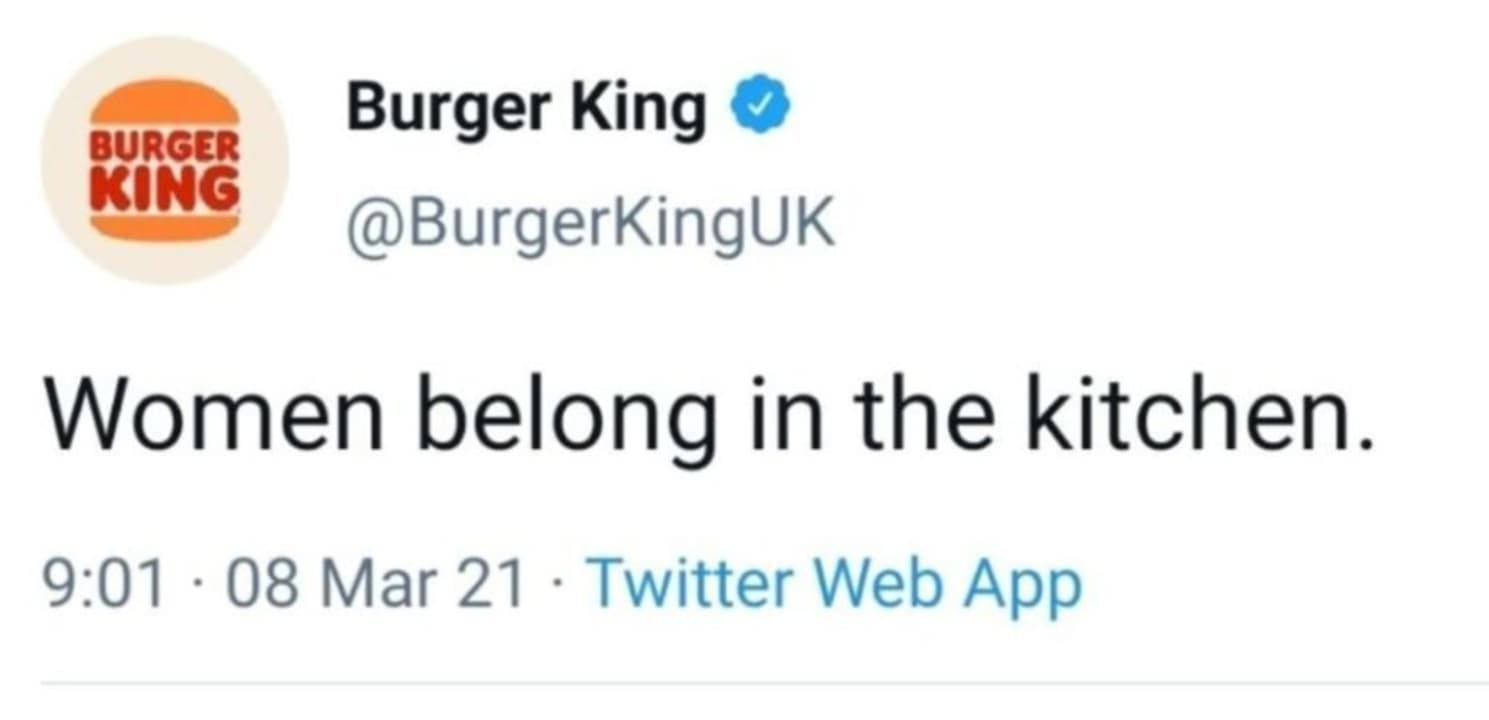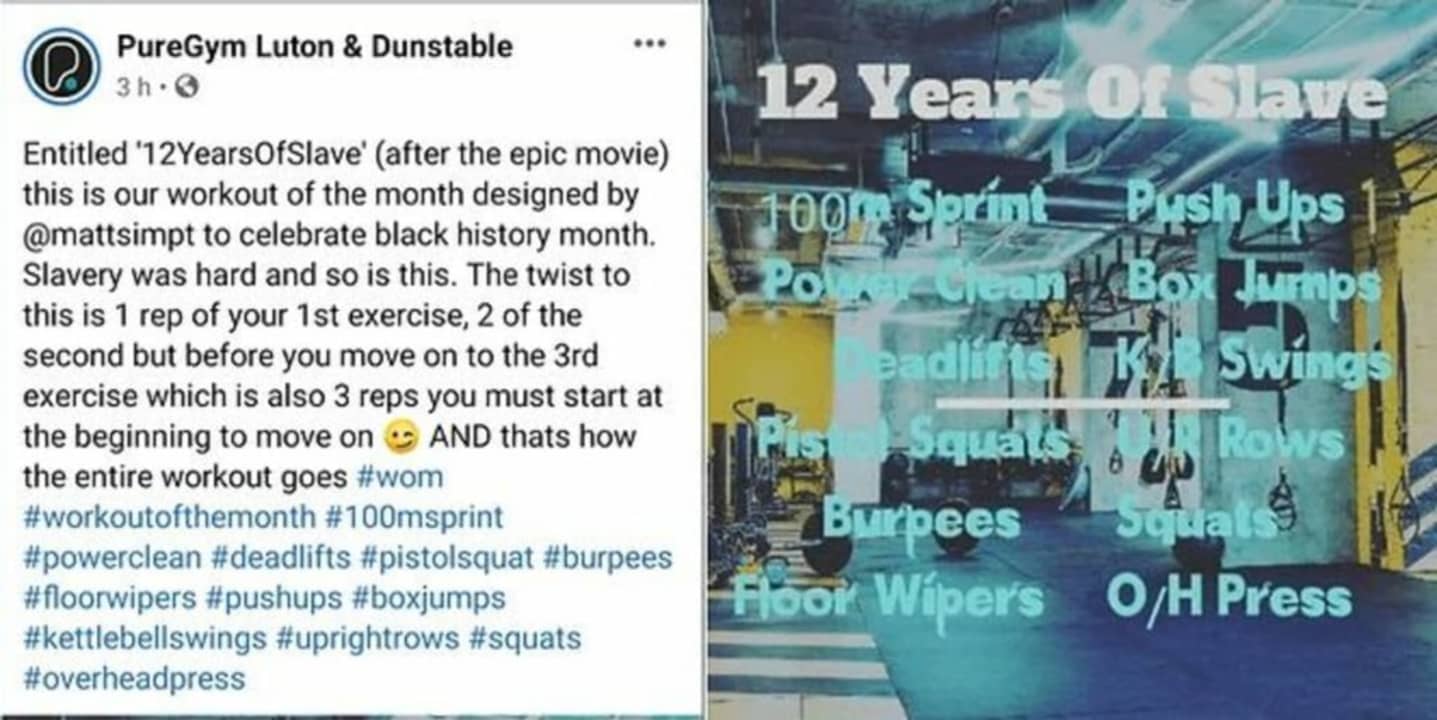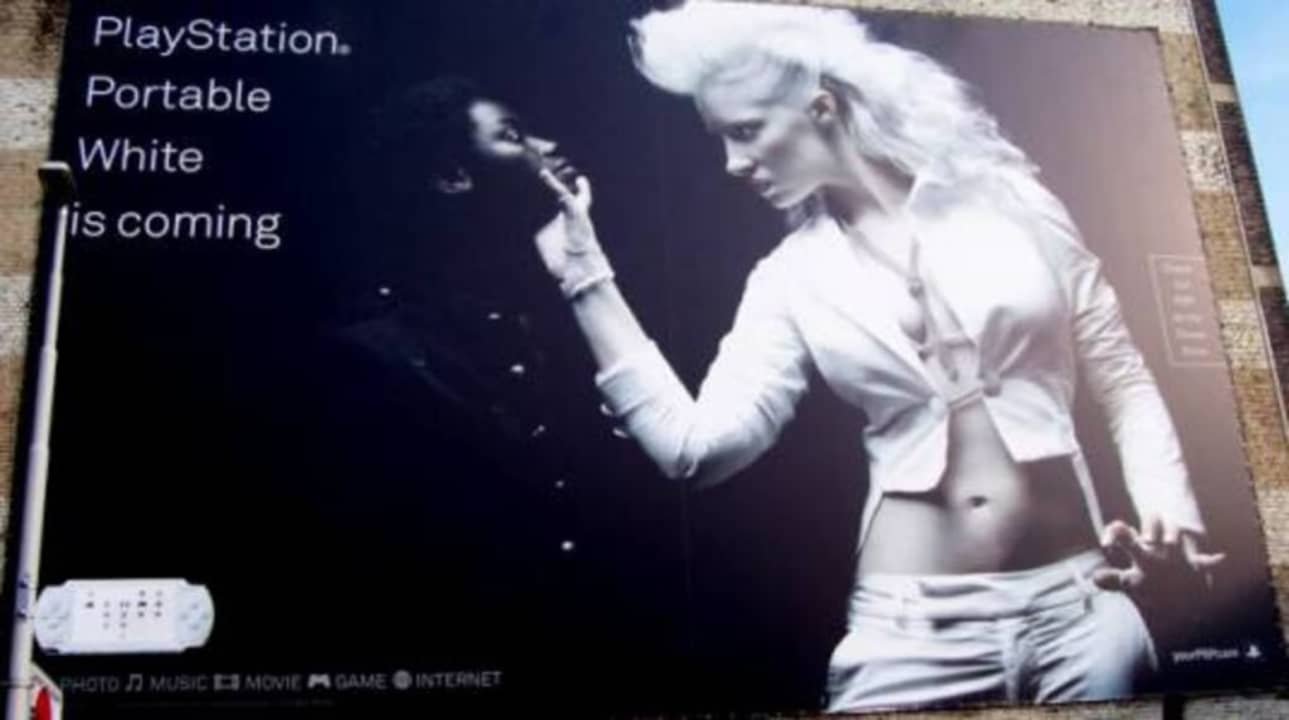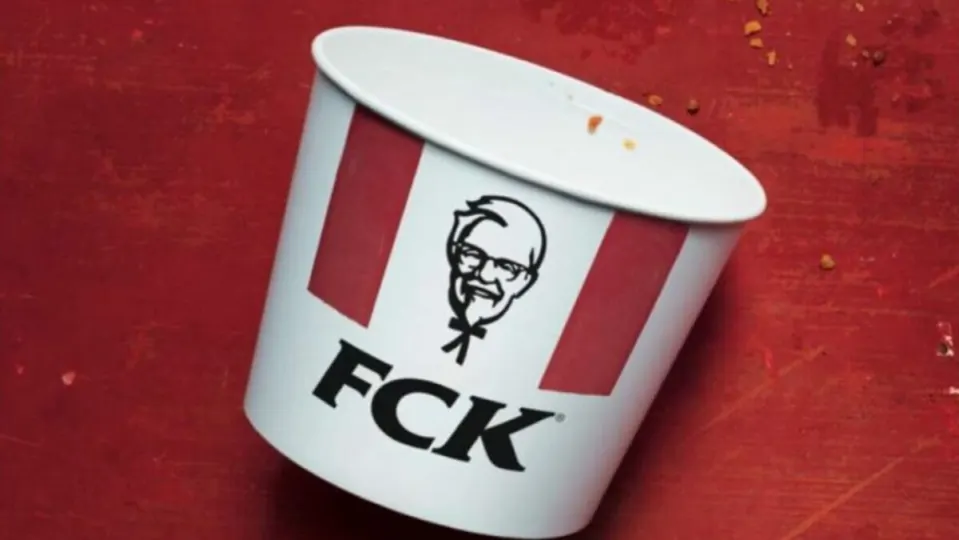Creating a marketing campaign is not easy, and often, small variables that you might not even be aware of have to be taken into account. For instance, there could have been someone who spent a fortune on the slogan “Taller towers fell” and published it on September 10, 2001. It didn’t happen, but it could have. Today, we are going to review five advertisements that arrived late, went wrong, and were unpleasant for everyone, but they have that charm of terribly bad ideas, the lingering taste of bitterness, sleepless nights at the office, and sweat to push forward something that everyone knew (or should have known) would be a monumental failure.
5 – Burger King
Personally, I applaud the idea of this campaign, especially because Burger King already anticipated that it could either be an incredible success or an epic failure. After all, in 2021, we all knew the risks involved in posting an inflammatory tweet on International Women’s Day. And that’s exactly what happened: the fast-food company wrote, “Women belong in the kitchen,” as the initial tweet of a thread aimed at addressing gender inequality in the kitchen and eventually announced a scholarship to help women pursue their culinary dreams.

The first tweet received 274,400 retweets. The second, where the campaign was explained, received 13,100 retweets. The last one, where the scholarships were announced, received 4,900 retweets. The outcome was both avoidable and, at the same time, expected: a disaster for the public relations department.
4 – PureGym
In 2020, a chain of gyms in the United Kingdom decided to announce the exercises for that month (such as sprinting a hundred meters, squats, burpees, etc.) under a specific name. Of course, they could have chosen a name like “Get in Shape” or “Get Your Body Moving,” but instead, they launched it as “12 Years of Slavery.” It was not a coincidence: they intended to celebrate Black History Month. It was a major misstep.

“They commented on a Facebook page that ‘Slavery is tough, and so is this,’ a page that is best left unsearched because it was completely taken down while everyone wondered how it was possible that no one, at any moment, said, ‘This is a terrible idea.'”
3 – Reebok
Germany, 2012. The team responsible for creating a compelling campaign at Reebok is brainstorming new slogans that are both fun and attention-grabbing. They want something that will generate playful controversy. You would never believe what they ended up with: “Cheating on your girlfriend is bad. Cheating on your workout is worse.”

The advertisement was withdrawn in record time (once again: Was there no one to say “Bad idea”?), and the company had to send a press release clarifying that they did not endorse infidelity. The magnitude of the blunder must have been significant for them to have to disassociate their brand from a concept that, at first glance, has nothing to do with it.
2 – PSP
During the ’90s, video game advertisements were, in hindsight, a collection of sexist, racist, and transphobic absurdities, but they were products of their time. By the time the PSP was released, Sony knew that the rules of the game had changed, and controversial ads did more harm than good. And honestly, I believe that with this billboard, they simply wanted to announce that the console would now be available in white color. But…

“The white is coming” with an image depicting a white person seemingly dominating a black person… It’s not the best idea, no matter how spectacular it may have sounded in their heads. The controversy was inevitable, and Sony did not withdraw the advertisement, explaining that there was no ill intent behind it. Well, there might not have been malice, but…
1 – Pepsi
Yes, it was a disaster that many saw coming. The biggest advertising blunder of the 21st century starred Kendall Jenner leading a protest and seemingly resolving tensions between protesters and police by handing a can of Pepsi. Not only did Twitter mock the advertisement endlessly, but it was also perceived as exploiting the Black Lives Matter movement for commercial gain.
Quickly, the million-dollar campaign was withdrawn, and Pepsi apologized to Kendall Jenner (who, on the other hand, might not have accepted the ad in the first place) and stated that they were “trying to project a global message of unity, peace, and understanding.” Clearly, someone involved had never been to a real protest, Pepsi.
Some of the links added in the article are part of affiliate campaigns and may represent benefits for Softonic.


